detail profile ferris webster

Riwayat Hidup
From Wikipedia, the free encyclopedia
Ferris Webster (April 29, 1912 – February 4, 1989) was an American film editor with approximately seventy-two film credits.
He was nominated for Academy Awards for Best Film Editing for his work on Blackboard Jungle (1955), The Manchurian Candidate (1962), and The Great Escape (1963).
Webster was raised in the state of Washington, and was a student at the University of Southern California, where he was an outstanding track and field athlete.
He was trained as an editor at the MGM Studios, and received his first feature-film credit in 1943 for Harrigan's Kid.
At MGM, Webster edited six films with director Vincente Minnelli: Undercurrent (1946), Madame Bovary (1949), Father of the Bride (1950), Father's Little Dividend (1951), The Long, Long Trailer (1954), and Tea and Sympathy (1956).
Film critic Bruce Eder has written of Madame Bovay that, "the cutting of the film in the gala ball sequence, in particular, was a marvel of the editor's art in the service of old Hollywood's restrained, elegant storytelling.
" In the mid-1950s, he edited three films with director Richard Brooks: Blackboard Jungle (1955), Something of Value (1957), and Cat on a Hot Tin Roof (1958); Webster received his first nomination for the Academy Award for Blackboard Jungle.
His last film at MGM was Key Witness (1960).
Bruce Eder has written, "If ever a film editor deserved public recognition in the 1960s, it was Ferris Webster.
" Webster edited the three films of director John Frankenheimer's "paranoia trilogy": The Manchurian Candidate (1962), Seven Days in May (1964), and Seconds (1966).
Eder writes that The Manchurian Candidate was "the editor's magnum opus.
The shooting, cutting, and intercutting of one extended brainwashing sequence, seen from multiple points-of-view, is still striking decades later, and the movie earned Webster his second Academy Award nomination.
" Frankenheimer cast Webster in his only appearance as a film actor, as Air Force Gen.
Bernard "Barney" Rutkowski in Seven Days in May.
Webster was nominated for an Academy Award for the editing of The Great Escape (1963), which was directed by John Sturges.
Webster and Sturges' notable collaboration included fifteen films between 1950 and 1972, which is about half of Sturges' films in that period.
It started with The Magnificent Yankee and Mystery Street (1950), and included The Law and Jake Wade (1958), The Magnificent Seven (1960), and Ice Station Zebra (1968).
The final film of their collaboration was Joe Kidd (1972), which was near the end of Sturges' career.
Joe Kidd starred Clint Eastwood.
In the last phase of his career, Webster edited and co-edited eight films that were directed by Eastwood, starting with High Plains Drifter (1973), which was Eastwood's second film as a director.
Webster edited Breezy (1973), The Eiger Sanction (1975), The Outlaw Josey Wales (1976), The Gauntlet (1977), Bronco Billy (1980), Firefox (1982) and Honkytonk Man (both 1982).
These latter two films with Eastwood concluded Webster's career as an editor, apparently after a falling-out between the two men.
Additional credits include The Picture of Dorian Gray (1945), Lili (1953), Forbidden Planet (1956), Les Girls (1957), Divorce American Style (1967).
Info Pribadi
Peran Yang Di Mainkan Ferris Webster
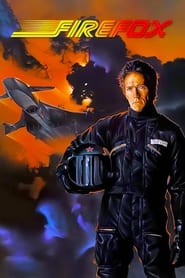 The Soviets have developed a revolutionary...
The Soviets have developed a revolutionary...Firefox 1982
The Soviets have developed a revolutionary new jet fighter, called 'Firefox'. Worried that the jet will be used as a first-strike weapon—as there are rumours that it is undetectable by radar—the British send ex-Vietnam War pilot, Mitchell Gant on a covert mission into the Soviet Union to steal the Firefox.
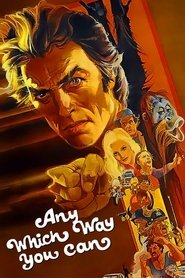 Philo takes part in a bare...
Philo takes part in a bare...Any Which Way You Can 1980
Philo takes part in a bare knuckle fight - as he does - to make some more money than he can earn from his car repair business. He decides to retire from fighting, but when the Mafia come along and arrange another fight, he is pushed into it. A motorcycle gang and an orangutan called Clyde all add to the 'fun'.
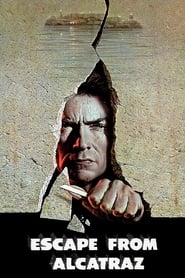 San Francisco Bay January 18 1960 Frank Lee...
San Francisco Bay January 18 1960 Frank Lee...Escape from Alcatraz 1979
San Francisco Bay, January 18, 1960. Frank Lee Morris is transferred to Alcatraz, a maximum security prison located on a rocky island. Although no one has ever managed to escape from there, Frank and other inmates begin to carefully prepare an escape plan.
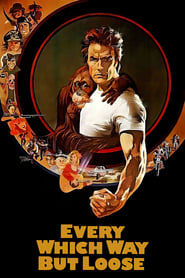 Philo Beddoe is your regular easygoing...
Philo Beddoe is your regular easygoing...Every Which Way but Loose 1978
Philo Beddoe is your regular, easygoing, truck-driving guy. He's also the best bar-room brawler west of the Rockies. And he lives with a 165-pound orangutan named Clyde. Like other guys, Philo finally falls in love - with a flighty singer who leads him on a screwball chase across the American Southwest. Nothing's in the way except a motorcycle gang, some cops, and legendary brawler Tank Murdock.
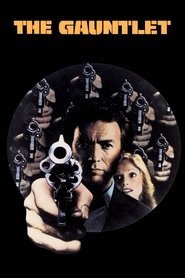 Phoenix cop Ben Shockley is well...
Phoenix cop Ben Shockley is well...The Gauntlet 1977
Phoenix cop Ben Shockley is well on his way to becoming a derelict when he is assigned to transport a witness from Las Vegas. The witness turns out to be a belligerent prostitute with mob ties—and incriminating information regarding a high-ranking figure.
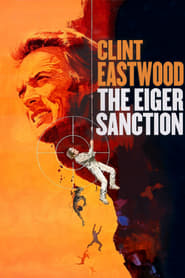 A classical art professor and collector...
A classical art professor and collector...The Eiger Sanction 1975
A classical art professor and collector, who doubles as a professional assassin, is coerced out of retirement to avenge the murder of an old friend.
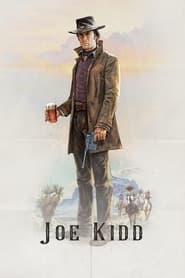 A band of Mexicans find their...
A band of Mexicans find their...Joe Kidd 1972
A band of Mexicans find their U. S. land claims denied and all the records destroyed in a courthouse fire. Their leader, Louis Chama, encourages them to use force to regain their land. A wealthy landowner wanting the same decides to hire a gang of killers with Joe Kidd to track Chama.
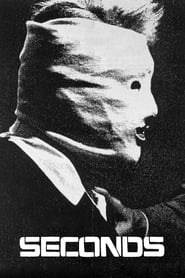 An unhappy middleaged banker agrees to...
An unhappy middleaged banker agrees to...Seconds 1966
An unhappy middle-aged banker agrees to a procedure that will fake his death and give him a completely new look and identity; one that comes with its own price.
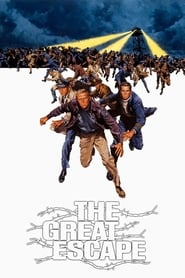 The Nazis exasperated at the number...
The Nazis exasperated at the number...The Great Escape 1963
The Nazis, exasperated at the number of escapes from their prison camps by a relatively small number of Allied prisoners, relocate them to a high-security 'escape-proof' camp to sit out the remainder of the war. Undaunted, the prisoners plan one of the most ambitious escape attempts of World War II. Based on a true story.
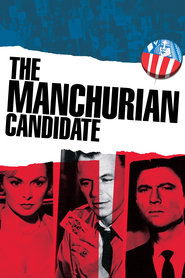 Near the end of the Korean...
Near the end of the Korean...The Manchurian Candidate 1962
Near the end of the Korean War, a platoon of U.S. soldiers is captured by communists and brainwashed. Following the war, the platoon is returned home, and Sergeant Raymond Shaw is lauded as a hero by the rest of his platoon. However, the platoon commander, Captain Bennett Marco, finds himself plagued by strange nightmares and soon races to uncover a terrible plot.
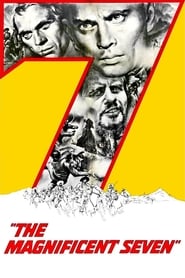 An oppressed Mexican peasant village hires...
An oppressed Mexican peasant village hires...The Magnificent Seven 1960
An oppressed Mexican peasant village hires seven gunfighters to help defend their homes.
 An alcoholic exfootball player drinks his...
An alcoholic exfootball player drinks his...Cat on a Hot Tin Roof 1958
An alcoholic ex-football player drinks his days away, having failed to come to terms with his sexuality and his real feelings for his football buddy who died after an ambiguous accident. His wife is crucified by her desperation to make him desire her: but he resists the affections of his wife. His reunion with his father—who is dying of cancer—jogs a host of memories and revelations for both father and son.
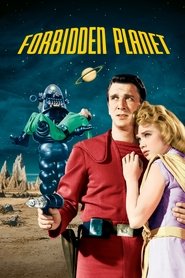 Starship C57D travels to planet...
Starship C57D travels to planet...Forbidden Planet 1956
Starship C57D travels to planet Altair 4 in search of the crew of spaceship "Bellerophon," a scientific expedition that has been missing for twenty years. They find themselves unwelcome by the expedition's lone survivor and warned of destruction by an invisible force if they don't turn back immediately.
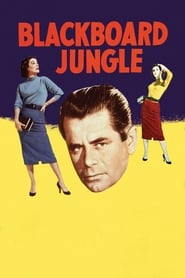 Richard Dadier is a teacher at...
Richard Dadier is a teacher at...Blackboard Jungle 1955
Richard Dadier is a teacher at North Manual High School, an inner-city school where many of the pupils frequently engage in anti-social behavior. Dadier makes various attempts to engage the students' interest in education, challenging both the school staff and the pupils. He is subjected to violence as well as duplicitous schemes.
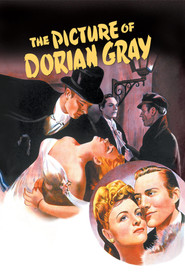 Posing for a portrait Dorian Gray...
Posing for a portrait Dorian Gray...The Picture of Dorian Gray 1945
Posing for a portrait, Dorian Gray talks with Lord Henry Wotton, who says that men should pursue their sensual longings, but laments that only the young get to do so. Taken with the idea, Dorian imagines a scenario in which the painting will age as he stays youthful. His wish comes true, and his boyish looks aid him as he indulges his every whim. But when a stunning revelation forces him to see what he's become, Dorian faces some very dangerous questions.
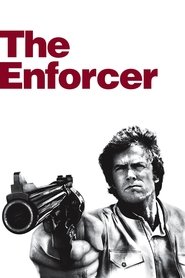 Dirty Harry Callahan returns again this...
Dirty Harry Callahan returns again this...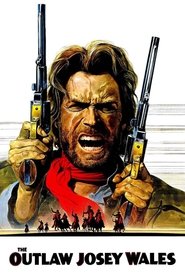 After avenging his familys brutal murder...
After avenging his familys brutal murder... With the help of an irreverent...
With the help of an irreverent...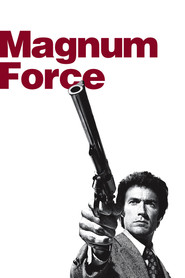 Dirty Harry Callahan is a San...
Dirty Harry Callahan is a San...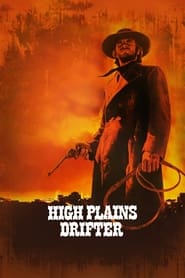 A gunfighting stranger comes to the...
A gunfighting stranger comes to the...